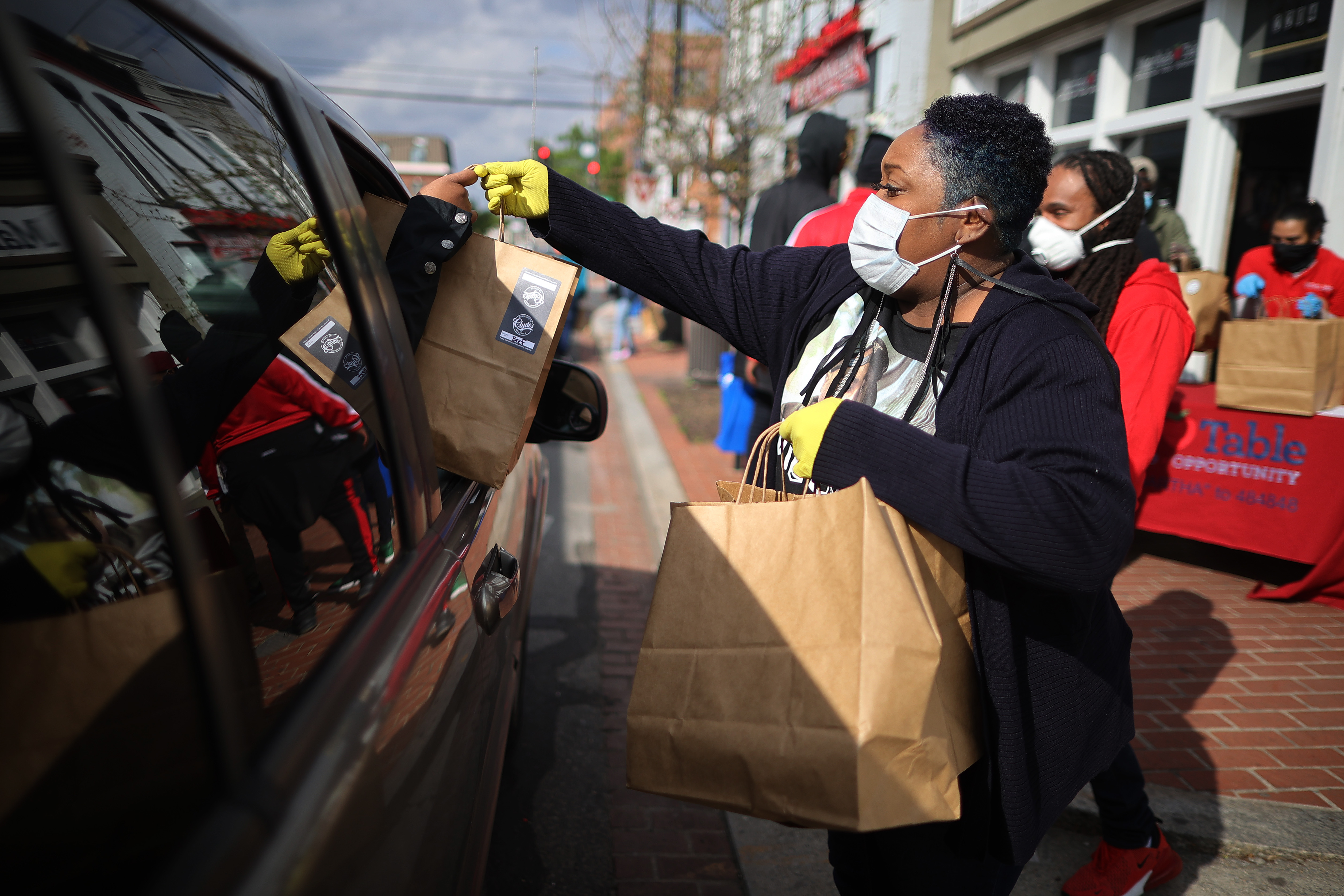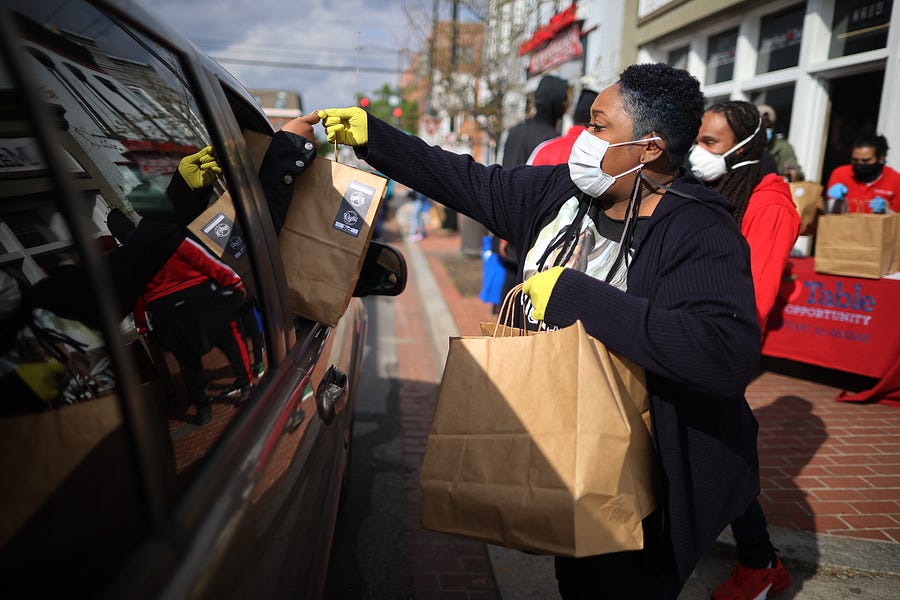Today’s newsletter isn’t going to be theological. It’s going to be practical. It’s one person’s thoughts on how to live when we simply don’t know if everything is going to be okay.
I’ve told this story before, but I’ll tell it again. It starts in the very early morning hours of November 22, 2007. It was my first night in Iraq, and I was huddled with several hundred troopers from the Second Squadron, Third Armored Cavalry Regiment near a helipad in Balad Air Base. We were waiting for a flight of CH-47 Chinook helicopters to take us to Forward Operating Base Caldwell in Diyala Province. “Caldwell,” as we called it, was to be our home for most of the next year.
I was nervous. I was an older reservist, a 38-year-old JAG officer, joining an active-duty combat arms unit on a mission into an area of operations that was largely held by al-Qaeda. It was our mission to take that territory back. Not only had I never been deployed, I was fresh out of JAG school. As recently as Halloween I was still living my civilian life, running the Alliance Defending Freedom’s Center for Academic Freedom.
My nervousness turned to outright fear when we boarded the helicopter. We took off, flying low and fast, packed like sardines into the back of the Chinook. From my perch, I could look right over the shoulder of the door gunner. Off in the distance I could see fires and tracer rounds from a faraway firefight. In that moment, everything became very real.
I was just a JAG officer—an Army lawyer—but I knew that I would be going outside the wire, outside of the relative safety of our base. I knew that many of the men all around me would go outside the wire far more than I would. I had the keen sense that I might not see my family ever again. I freely admit that I felt afraid.
So I prayed, fervently, that God would give me some sense of assurance that I’d make back home. I also prayed for courage and competence, that I could do my duty supporting the men who would face far more daily risk than me. I knew I was entering what the psalmist called, “the valley of the shadow of death.”
God never answered the first part of my prayer. I never felt that sense of assurance. In fact, it diminished by the day as our unit began to take casualties. It diminished each time I journeyed across roads that we suspected were mined with improvised explosive devices or walked streets in towns and villages where al-Qaeda cells hid. It diminished even more as I lost dear friends. There were weeks at a time when the days were so dark that we wondered if all the members of our “band of brothers” would make it back to Caldwell—or to one of our far-flung combat outposts—at the end of each night.
For almost a full year, I lived each day deprived of any sense of security, of any sense that things would be okay. And there were many days when things were not okay, when death prevailed.
I thought back to that time when the shelter-in-place orders started to roll in. I was reminded of it again when one of my kids asked me if I thought we might lose a family member to coronavirus. “I don’t know,” I responded. People we love are in the most vulnerable categories. I thought of it more as the death toll spiked this week. We’re now losing Americans at the rate of more than a 9/11 every three days. That death toll accompanies an emerging economic downturn that’s leaving few Americans unscathed.
In a very different time and in a very different setting (and with a very different enemy), we’re living in that uncertain space where soldiers live. Many parts of our nation are walking in the valley of the shadow of death. How do we walk through that valley? How do we achieve a degree of peace, meaning, and even joy in the face of such fear and loss?
What follows are a few things I learned in Iraq, and I find myself returning to them now. These thoughts don’t come engraved on tablets from Mount Sinai. They’re one man’s opinion based on one man’s experience. I’d be eager to hear your own thoughts in the comments. But here are the things that got me through Iraq and are guiding me today:
Find your band of brothers (and/or sisters). How do you endure a crisis? How do you face an uncertain future? Together. I’ve been blessed twice-over. I deployed to Iraq with men who were among the best I’ve ever known, men who are my brothers still to this day. I’m sheltering in my house with my wife and all my kids, including my new son-in-law.
I’m also keenly aware that there are people reading this who are alone in their houses, either distant from families or suffering after their families have fractured. It’s imperative that you find a way to hold tight to your friends, that you reach out to your family—even if you can only do it virtually. I’ve seen strong people break when they face a crisis alone.

Find and pursue your purpose. I’ve written before that this crisis presents Americans with a unique and frustrating challenge. At our best, we’re people who run to the danger. At our best, we respond to an emergency with immediate, courageous action. And now those of us who aren’t “essential” are supposed to stay home? Doctors and nurses have all the purpose they need. So do the people who maintain America’s critical infrastructure.
But social distancing doesn’t mean simply hunkering down, taking care of yourself, and waiting. Do you have financial security? Seek out and support those who do not. Do you know of people who are facing this crisis alone? Be their friend. Does anyone lack supplies? Make sure they have what they need, not just by supplying them yourself (not all of us can), but by linking them to ministries or public services who stand in the gap.
I’m going to brag a moment about my wife. I’ve watched amazed as she’s become a one-woman logistician, arranging food deliveries to shut-ins hundreds of miles away, all while spending hours in the kitchen to keep vulnerable people we love supplied with home-cooked meals. And then, at night, her phone dings constantly as she plays scrabble with her elderly aunt. The message is simple: You are not alone.
Seek joy. One of my favorite memories of my Iraq deployment is of the weeks and months after one of my friends took delivery of a video game called “Rock Band.” After missions and after shifts, we’d rush to his room, fire up Rock Band, and deliver the worst, most screeching renditions of Rush, Bon Jovi, Pearl Jam, and Nirvana that anyone has ever heard.
After Rock Band came World of Warcraft. We connected with a satellite internet service using an old Iraqi Army satellite dish, and soon enough we were fighting through high lag to quest through Azeroth.
Young people pursue joy by nature. As we get older—especially in uncertain times—the pursuit of friendship and fun often has to be intentional. We need to laugh, even when living in the shadow of pain, loss, and death.
Have faith. Throughout my deployment I must have listened to the modern hymn “In Christ Alone” more than a thousand times. The song, which presents one of the most potent and straightforward depictions of the Gospel I’ve ever heard, contains the following lyric:
No guilt in life, no fear in death,
This is the power of Christ in me
From life’s first cry to final breath,
Jesus commands my destiny
No power of hell, no scheme of man,
Can ever pluck me from His hand
Till He returns or calls me home
Here in the power of Christ I’ll stand.
There is no promise of long (earthly) life in these words. Rather it is a declaration of God’s sovereignty and power. Never before or since had I encountered such a keen sense that I had no control over my destiny. Never before or since did I encounter such a visceral feeling that I might be living the last moments of my life. There is no sensation quite like crawling into the back of a vulnerable Humvee to begin a long, late-night mission down roads that haven’t been cleared of IEDs.
Nothing about the Gospel told me that I would return. But everything in the Gospel told me that God is sovereign, and that no weapon formed against me could tear me away from Christ. That’s not fatalism. It’s providence. It’s the knowledge that the person who commands my destiny formed me in my mother’s womb, sacrificed himself for me, triumphed over death to grant me eternal hope, and is the author and finisher of my faith to this day.
That was of immense comfort then, and it is of immense comfort now.
One last thing …
I’m sure you saw it coming. “In Christ Alone.” And as a shout-out to my LDS readers, here’s a phenomenal a cappella vocal performance of the song from BYU. Enjoy.
Photograph of Martha’s Table volunteer Poet Taylor distributing hot meals donated by the Clyde’s Restaurant Group by Chip Somodevilla/Getty Images.







Please note that we at The Dispatch hold ourselves, our work, and our commenters to a higher standard than other places on the internet. We welcome comments that foster genuine debate or discussion—including comments critical of us or our work—but responses that include ad hominem attacks on fellow Dispatch members or are intended to stoke fear and anger may be moderated.
With your membership, you only have the ability to comment on The Morning Dispatch articles. Consider upgrading to join the conversation everywhere.